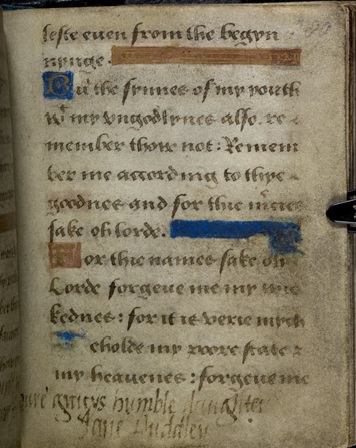The latest podcast from Histories of the Unexpected includes Lady Jane’s scaffold speech.
Histories of the Unexpected Podcast – Executions
The latest podcast from Histories of the Unexpected includes Lady Jane’s scaffold speech.
Histories of the Unexpected Podcast – Executions
‘Early Modern English Noblewomen and Self-Starvation: The Skull Beneath the Skin is a unique exploration of why early modern noblewomen starved themselves, how they understood their behaviour, and how it was interpreted and received by their contemporaries.
The first study of its kind, the book adopts an interdisciplinary and highly detailed approach to examining women’s self-starvation between 1500 and 1640. It is also the first book to focus on this behaviour among noblewomen. Beginning with a contextual outline of gender, food and embodiment in early modern culture, the book then looks explicitly at the food behaviour of several well-known figures, including Elizabeth I, Catherine of Aragon, Mary I, Arbella Stuart, and Katherine Grey. Each case study engages with a variety of primary sources, such as letters and legal documents, as well as with literary texts, providing an in-depth exploration of the relationship between self-starvation and concepts of autonomy, sexuality, and literal and symbolic imprisonment, highlighting the body and specifically the act of eating as fundamental to identity in the early modern period and today.
Employing both literary and historical methodologies, Early Modern English Noblewomen and Self-Starvation is an important contribution to the study of the history of the body and is essential reading for students and academics of early modern women’s history, gender history, food history, and the history of the body.’
Further details – Routledge.com
Further details – Sasha Garwood
Further details – Amazon.co.uk
‘Note, on mondaye the xxjst of August, it was appointed the duke with other shoulde have suffered, and all the garde were at the Tower; but howe soever it chaunced he did not; but he desired to here masse, and to receave the sacrament, according to the olde accustomed maner. So about ix of the clocke the alter in the chappell was arrayed, and eche thing prepared for the purpose; then mr Gage went and fetched the duke; and sir John Abridges and mr. John Abridges dyd fetche the marques of Northampton, sir Androwe Dudley, sir Herry Gates and sir Thomas Plamer, to masse…The lady Jane loking through the windowe sawe the duke and the rest going to the churche.’
The Chronicle of Queen Jane and of Two Years of Queen Mary, and Especially of the Rebellion of Sir Thomas Wyat
p.19
1st October – Royal Witches: From Joan of Navarre to Elizabeth Woodville by Gemma Hollman
‘Until the mass hysteria of the seventeenth century, accusations of witchcraft in England were rare. However, four royal women, related in family and in court ties – Joan of Navarre, Eleanor Cobham, Jacquetta of Luxembourg and Elizabeth Woodville – were accused of practising witchcraft in order to kill or influence the king.
Some of these women may have turned to the dark arts, but the purpose of the accusations was purely political. Despite their status, these women were vulnerable because of their gender as the men around them moved them like pawns for political gains.
In Royal Witches, Gemma Hollman explores the lives and the cases of these so-called witches. In a time when the line between science and magic was blurred, these trials offer a tantalising insight of how malicious magic would be used and cause such mass hysteria in centuries to come.’
Further details – The History Press
Further details – Just History Posts
Further details – Amazon.co.uk
7th April 2020 – Royal Witches: Witchcraft and the Nobility in Fifteenth-Century England by Gemma Hollman
‘The stories of four royal women, their lives intertwined by family and bound by persecution, unravel the history of witchcraft in fifteenth-century England.
Until the mass hysteria of the seventeenth century, accusations of witchcraft in England were rare. However, four royal women, related in family and in court ties―Joan of Navarre, Eleanor Cobham, Jacquetta of Luxembourg and Elizabeth Woodville―were accused of practicing witchcraft in order to kill or influence the king.
Some of these women may have turned to the “dark arts” in order to divine the future or obtain healing potions, but the purpose of the accusations was purely political. Despite their status, these women were vulnerable because of their gender, as the men around them moved them like pawns for political gains.
In Royal Witches, Gemma Hollman explores the lives and the cases of these so-called witches, placing them in the historical context of fifteenth-century England, a setting rife with political upheaval and war. In a time when the line between science and magic was blurred, these trials offer a tantalizing insight into how malicious magic would be used and would later cause such mass hysteria in centuries to come.’
Further details – Pegasus Books
